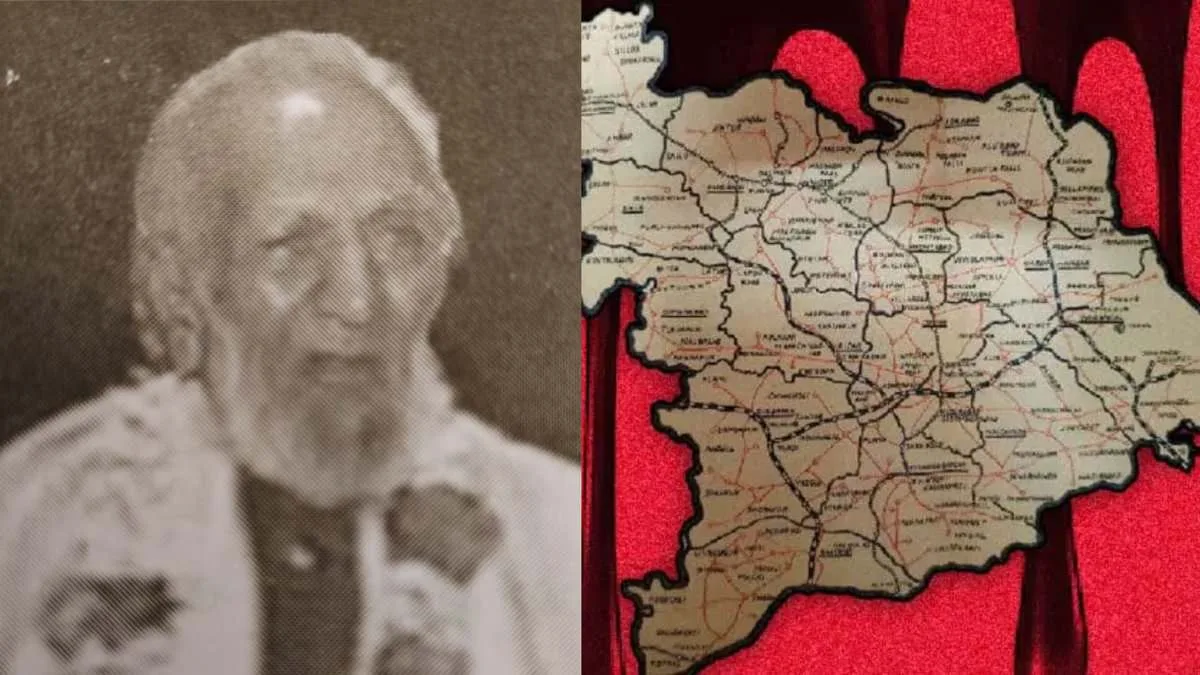Hyderabad: In the run up to the days leading to the annexation of Hyderabad to India, atrocities were perpetrated by the paramilitary group Razakars on Hindus, and post annexation (called ‘Operation Polo’), thousands of Muslims lost their life. The event is a painful chapter in the history of the erstwhile Hyderabad state.
The scars that were left are still difficult to erase from the minds of many families which witnessed violence. Amid all the hate and chaos that prevailed in the 1940s, there are many stories of bravery, harmony and humanism, which not many people may be aware of.
A book written in Telugu titled “1948 September Action: Gnyapakalu-Gaayalu,” authored by historian Paravastu Lokeshwar chronicled such stories narrated by those who lived and survived through those turbulent times.
The Razakars had issued a warning to Bhagwan Das, a Brahmin from Koratpally village in Nizamabad district, that they would loot his house and take away the women one night. In fear, Bhagwan Das went to Dr Abdul Quddus Zaimi, a homoeopathy doctor in the village and informed him about the impending danger.
That evening, at 4 pm Dr Abdul Quddus was guarding the house of the Brahmin family alone. He had ordered the family members not to come out of the house, no matter what happened outside.
At around 10 pm that night, a group of Razakars came drunk, wielding Jambiyas (daggers), swords, guns and lathis.
When the doctor questioned them why they had come, the Razakars asked him who he was to save Hindus.
“In his life Bhagwan Das never troubled or did injustice to any Muslim. He is divine. What harm has he done to you, that you came to attack him,” Dr Abdul Quddus questioned the attackers.
Lying on the ground before them, the doctor dared them to first kill him and stomp over his dead body to enter the house. Other Muslims too came in support off the doctor. A heated argument ensued and the Razakars, who belonged to the neighbouring village, left saying “phir dekh lenge”.
The next morning the doctor arranged for a taxi and got them dropped in Nizamabad. Then the Operation Polo began from September 13 and ended on 17.
As information came that the police forces were moving from Bidar towards Udgir, many Muslim families had fled to safer places. Even before the police entered the city, Hindus who were looking for revenge unleashed carnage over the Muslim population.
The houses and shops of Muslims were gutted. Muslims were hacked to death and their bodies were thrown inside open wells alive. While the riots were happening, the police forces waited outside the city for two days.
“It was a military strategy. If they had entered the city while emotions were running high, they would have had to resort to firing, which could have killed Hindus. They waited till everything was over, and then entered the city slowly,” Dr Abdul told the author.
Many Muslim women abducted by Hindus from Nanded, Jalna, Parbani, Beed and other cities, were kept captive in Hindu houses in Nizamabad.
One such woman from Udgir was abducted by a group of Hindus just before the police forces entered the city. She was gang raped, and then a pahelwan carried her on his shoulders and took her to his house. For two days he exploited her. When the women in his family scolded him, he sold her to another man who was equally cruel. Shifting places, raped repeatedly by several men, finally she ended up in a Hindu household in Nizamabad as a maid, a slave.
Several days after the police action, Dr Abdul Quddus, who was called to treat a ‘patient’ in that household. When he saw the woman crying ‘Allah Allah’ in pain, he understood that she was abducted. When questioned, the woman narrated her horrific experiences.
The doctor planned her escape with the help of his student named Sangram, who also hailed from Marathwada region. He engaged a taxi, gave money and helped the woman escape through the backdoor on an Amavasya. The woman reached Udgir and finally survived.
There were 12 Muslim and 500 Hindu families in Dr Abdul Quddus’ village. During the police action, Hindus from the neighbouring village had warned that they would be attacking the Muslims in Koratpally. The doctor stood at the Racchabanda (where disputes in the village are solved), and got everyone assembled there.
“The Hindus from the neighbouring villagers want to kill us. Why to get killed in their hands? It is better to die in your hands. At least we will die feeling that our own people killed us. They want to loot our wealth. Why should they forcefully do that? We ourselves will give our belongings to you happily,” the doctor announced.
The villagers bowed their heads in shame. “They want to abduct our women. I have been teaching morals to you for all these years. Have I ever behaved indecently or did anything wrong,” he asked the villagers. Meanwhile, Hindus from the neighbouring village came with weapons, fully drunk. Dr Abdul kept speaking and reminding how Muslims have served Hindu families in the village, and have never done anything wrong.
The elderly Hindus from the village came in support of the doctor and shunted-out the attackers. The matter ended there. Dr Abdus Quddus Zaimi, during his student days in Delhi, had participated in the freedom movement as a volunteer. After returning to his village to serve the people as a doctor, he married a woman from a poor family in his village.
After the death of his wife, he led a life of solitude by settling in Hyderabad and treating patients even at the age of 80. Paravastu Lokeshwar interviewed the doctor on April 14, 2001. In his book, the author describes his experience of meeting Dr Abdul Quddus Zaimi, as ‘watching a Sufi fakir continuously travelling alone in a desert’.







